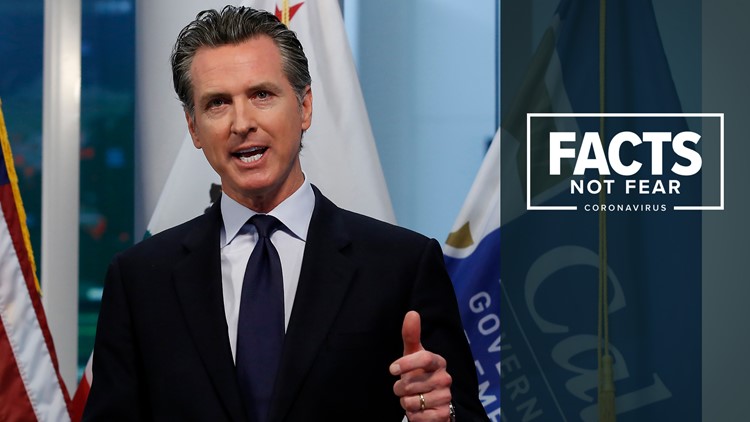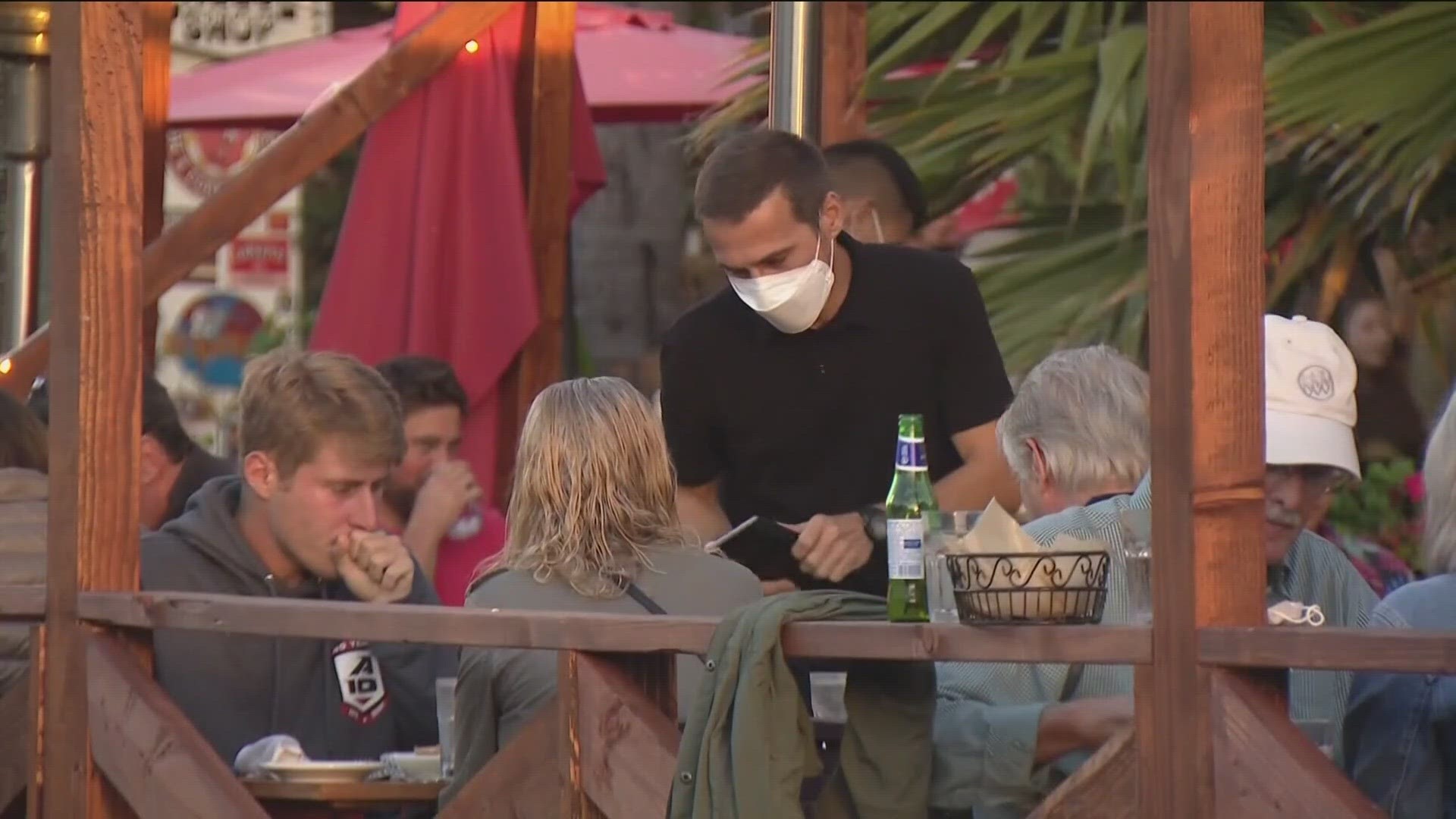SAN DIEGO — Governor Gavin Newsom announced Thursday during his daily media briefing update for the state that he signed an executive order to stop debt collectors from garnishing COVID-19-related relief to individuals.
“Californians are receiving the COVID-19 relief funds they desperately need right now. That relief should not be taken from them,” Newsom said.
In partnership with a number of other states, Newsom said he received a commitment from 21 out of 24 of the largest student loan servicers in the state of California. They have agreed to a 90-day forbearance on student loan debt impacting over 1.1 million Californians with loan debt.
"That includes no impact to their credit rating, no late fees or fines, and support in getting future payment plans in process for student loan borrowers in the state of California," said Newsom.
Newsom said Wednesday was the deadliest day for the state of California. The number of deaths jumped in the last 24 hours to 115 while the number of hospitalized dropped 4.4% and the number of people in the ICU dropped by 1.2%.
Newsom also said California doctors were on a flight to New York City to help fight COVID-19. So far 36 doctors and nurses have been deployed to New York.
“As California continues to prepare for a potential surge, we will not turn our back on fellow Americans in need,” said Newsom.
During the media briefing, Newsom was asked if he had any idea on when the state would be reopened.
"As far as when we will reopen, I will let you know what the indicators say and when they go green I will let you know in real time. It's determined on one thing -- you, each and every single one of you," said Newsom.
On Wednesday, Newsom said California hospitals will resume scheduled surgeries. He called it the first significant change to the state's stay-at-home order that has been in place for more than a month. The change covers surgeries that are not emergencies. Newsom said examples include procedures for tumors, heart valves and chronic disease. The change does not include purely cosmetic surgeries.
Newsom said state officials will be monitoring hospitals closely to make sure they are not overwhelmed. If there is a surge of coronavirus cases, the scheduled surgery ban could be put back in place.
Newsom also said that the state still doesn't have enough testing capacity to lift a stay-at-home order.

View all News 8 coverage of coronavirus / COVID-19
News 8 has joined forces with The San Diego Foundation to raise immediate, emergency funds for our most vulnerable neighbors in need. Here is how you can help.
We also have a Frequently Asked Questions page we will continue updating with the latest information and reports.
Click here to watch "Facts Not Fear," a News 8 Special on coronavirus from March 26, 2020.
BACKGROUND
According to the CDC, coronavirus (COVID-19) is a family of viruses that is spreadable from person to person. Coronavirus is believed to have been first detected in a seafood market in Wuhan, China in December 2019. If someone is sick with coronavirus, the symptoms they may show include mild to severe respiratory illness, cough, and difficulty breathing.
Currently, there is no vaccine, however, the CDC suggests the following precautions, as with any other respiratory illness:
Know how it spreads
There is no vaccine
The best way to prevent illness is to avoid being exposed to the virus
It is thought to spread mainly from person-person between people in close contact
And believed to be spread by respiratory droplets produced when an infected person coughs or sneezes
Protect yourself
Wash your hands with soap and water for a minimum of 20 seconds
If soap and water aren't available, use hand sanitizer that contains at least 60% alcohol
Avoid touching your eyes, nose, and mouth
Avoid close contact with people who are sick
Put distance between yourselves and others
Protect others
Stay home when you are sick
Wear a facemask if you are sick
Cover your cough or sneeze with a tissue, then throw the tissue in the trash
If you don't have tissue, cough or sneeze into the inside of your elbow
Immediately wash your hands after coughing and sneezing
Clean and disinfect frequently touched objects and surfaces using a regular household cleaning spray or wipe
You can find information on disinfecting and cleaning on the CDC's How to Protect Yourself page.
The California Department of Public Health has issued guidance on the use of cloth face coverings to protect against the spread of the novel coronavirus COVID-19.
The County of San Diego has made face coverings mandatory for those working with the public including grocery stores, pharmacies, gas stations, convenience stores, and similar businesses.
While officials say these face coverings are not a substitute for practices like social distancing and handwashing, there is evidence to suggest that the use of cloth face coverings by the public during a pandemic could help reduce disease transmission. Officials do not recommend the public use N-95 or surgical masks which are needed by health care workers and first responders.



